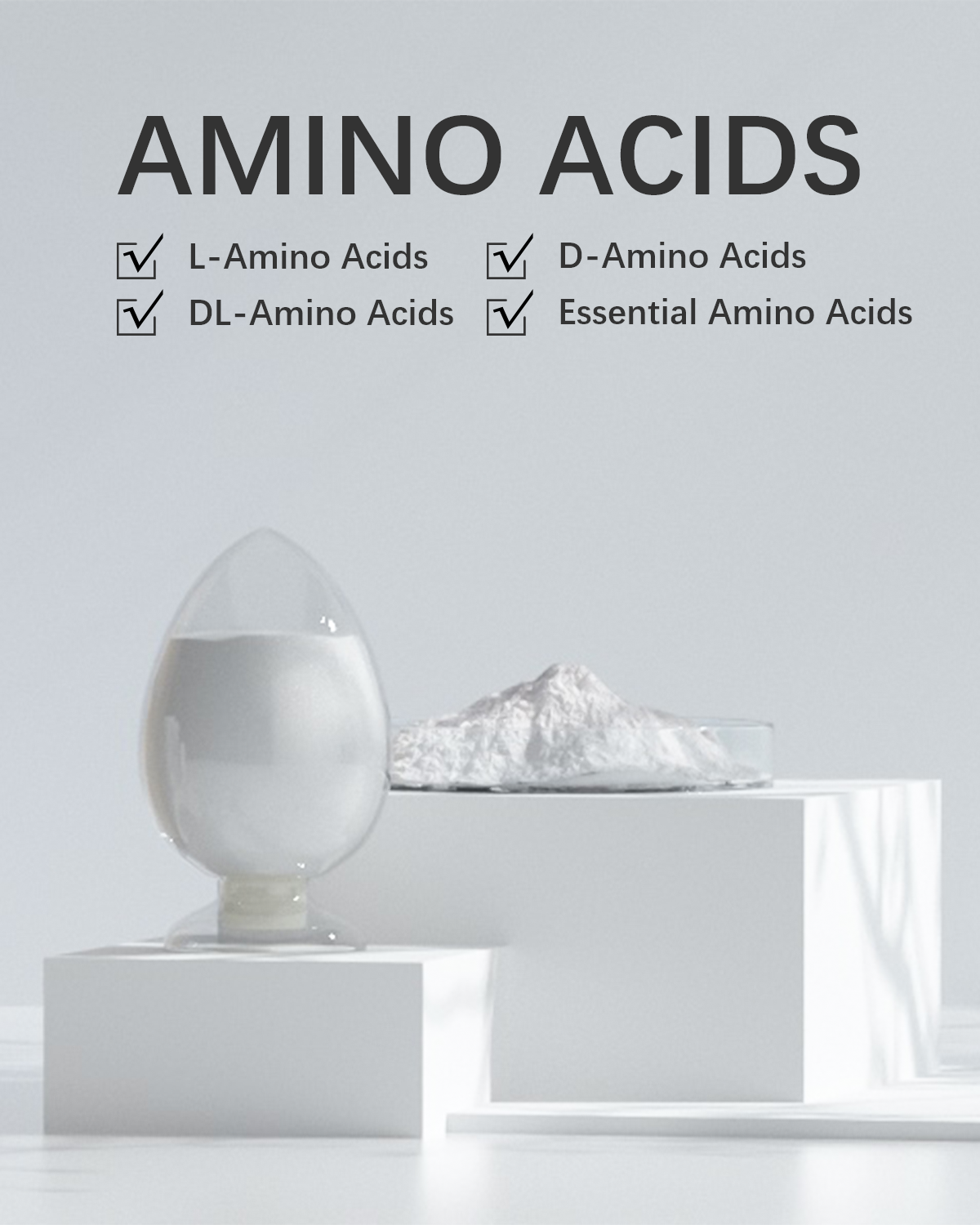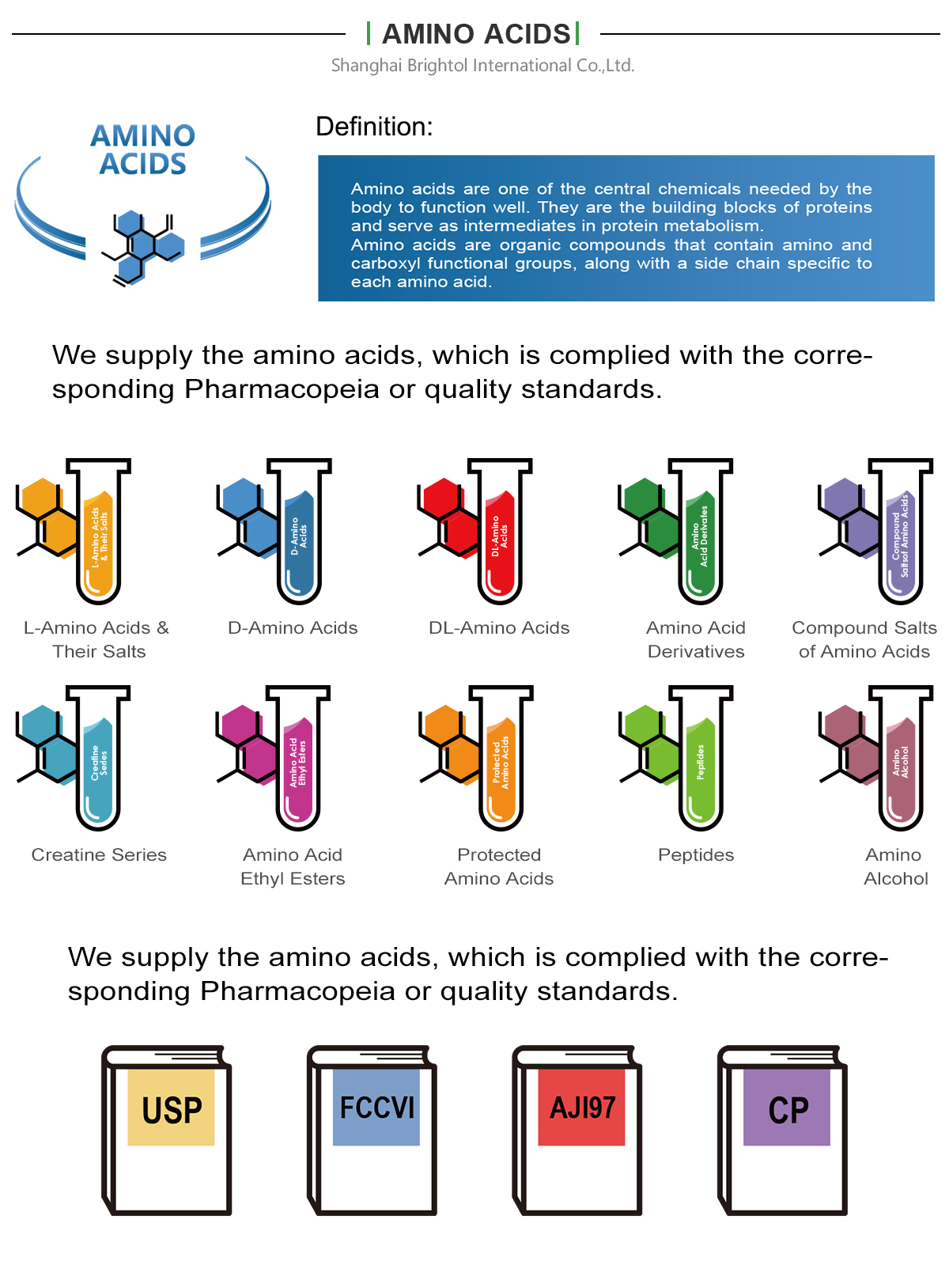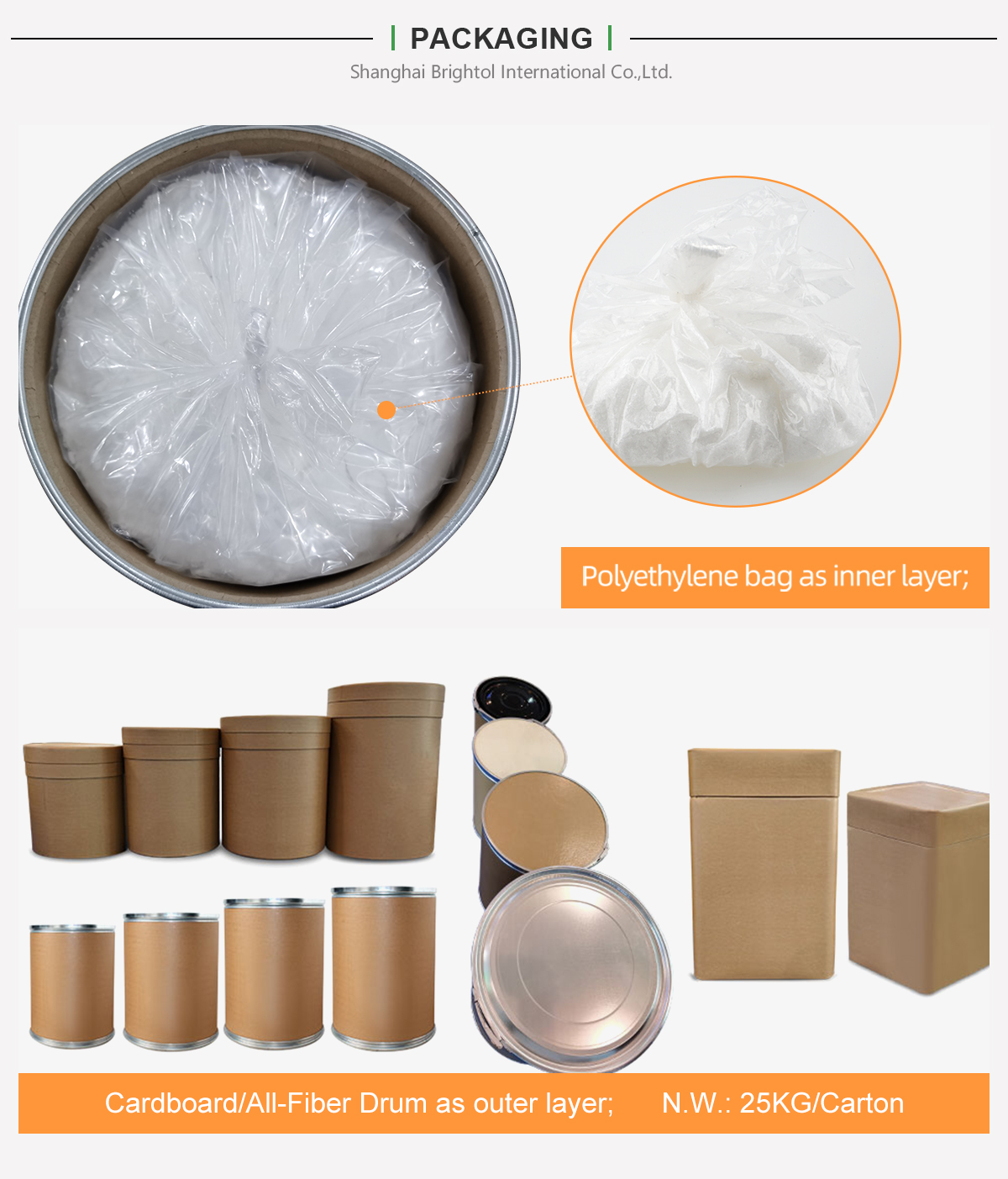

Product Name: Glycine
CAS No.: 56-40-6
Synonyms: Aminoacetic acid; Gly; Iconyl; Monazol
Molecular Formula: C2H5NO2
Molecular Weight: 75.07
EINECS: 200-272-2
Description
Glycine is an amino acid, a building block for protein. It is not considered an “essential amino acid” because the body can make it from other chemicals. A typical diet contains about 2 grams of glycine daily. The primary sources are protein-rich foods including meat, fish, dairy, and legumes.
Glycine is used for treating schizophrenia, stroke, benign prostatic hyperplasia (BPH), and some rare inherited metabolic disorders. It is also......


Product Name: Glycine
CAS No.: 56-40-6
Synonyms: Aminoacetic acid; Gly; Iconyl; Monazol
Molecular Formula: C2H5NO2
Molecular Weight: 75.07
EINECS: 200-272-2
Description
Glycine is an amino acid, a building block for protein. It is not considered an “essential amino acid” because the body can make it from other chemicals. A typical diet contains about 2 grams of glycine daily. The primary sources are protein-rich foods including meat, fish, dairy, and legumes.
Glycine is used for treating schizophrenia, stroke, benign prostatic hyperplasia (BPH), and some rare inherited metabolic disorders. It is also used to protect kidneys from the harmful side effects of certain drugs used after organ transplantation as well as the Liver from harmful effects of alcohol. Other uses include cancer prevention and memory enhancement.
The body uses glycine to make proteins. Glycine is also involved in the transmission of chemical signals in the brain, so there is interest in trying it for schizophrenia and improving memory. Some researchers think glycine may have a role in cancer prevention because it seems to interfere with the blood supply needed by certain tumors.
Glycine Benefits & Uses
1) Helping build lean muscle mass
2) Preventing scaropenia (muscle loss, muscle wasting or deterioration)
3) Playing a role in the production of human growth hormone
4) Boosting mental performance and memory
5) Helping prevent strokes and seizures
6) Protecting skin from signs of aging or cellular mutations
7) Protecting collagen in joints and reducing joint pain
8) Improving flexibility and range of motion









